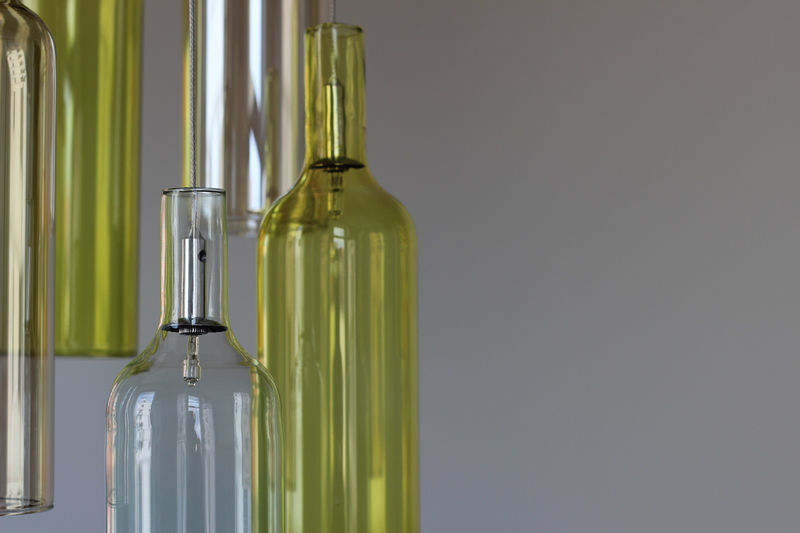Safe and Effective Ways to Dispose of Metal Cookware
Metal cookware is a kitchen essential that every home relies on for daily cooking and meal preparation. Over time, however, pots, pans, baking trays, and other metal utensils can become scratched, dented, or lose their nonstick coating, making them unsuitable for further use. If you're wondering how to safely and effectively dispose of metal cookware, you're not alone! This comprehensive guide will explore a range of environmentally friendly and convenient options, sustainable practices, and tips for disposing of your old or damaged metal cookware responsibly.

Why Proper Disposal of Metal Cookware Matters
Improper disposal of metal cookware can negatively impact the environment. Many cookware items are made from valuable metals, such as aluminum, stainless steel, or cast iron, which are all recyclable materials. Throwing them in the trash means losing out on their recycling potential and contributing to landfill waste. Moreover, some cookware contains coatings or materials that could be harmful if not disposed of correctly.
That's why it's important to learn about the safe, eco-friendly ways to dispose of metal cookware so you can reduce your environmental footprint and even give your old pans a second life!
Can Metal Cookware Be Recycled?
Yes, most metal cookware can be recycled - with a few considerations. The recyclable component is usually the main body, which may be made of stainless steel, aluminum, or cast iron. However, recycling rules depend on your local facilities and the type of metal.
- Stainless Steel Cookware Disposal: Stainless steel pans and pots are highly recyclable and accepted at most scrap metal recycling centers.
- Aluminum Cookware Disposal: Aluminum is lightweight and readily recycled, either curbside or at collection centers, if it is free from non-metal parts.
- Cast Iron Cookware Disposal: Cast iron can easily be dropped off at scrap metal yards; some collectors even seek out vintage or branded cast iron for restoration or reuse.
Before recycling, remove any plastic handles, glass lids, or nonstick coatings if possible, as these may hamper the recycling process.
Eco-Friendly Ways to Dispose of Old Metal Cookware
1. Donate Usable Cookware
If your metal pots and pans are still functional (not badly warped, rusted, or missing handles), consider donation as a sustainable disposal method. Many people are in need of basic kitchen items, and a local shelter, charity, nonprofit, or thrift store will likely appreciate your contribution.
- Community Centers and Shelters: These organizations often support families or individuals starting afresh.
- Thrift Stores: Used cookware, especially stainless steel or cast iron pans, are popular items for thrifty shoppers and students.
- Food Banks: Some food banks accept cookware to help recipients prepare healthy meals.
2. Recycle at Metal Recycling Facilities
If your cookware is damaged, worn out, or not suitable for donation, take it to a scrap metal recycler. Metal recycling is a safe and efficient way to dispose of cookware that is no longer of use. Unlike general municipal recycling, scrap yards have the tools and processes to sort and process all types of metal, including:
- Steel and aluminum frying pans
- Cast iron skillets and Dutch ovens
- Metal baking pans and trays
How to Prepare Metal Cookware for Recycling:
- Clean thoroughly: Remove food residue, grease, and burnt bits from the surface.
- Detach non-metal parts: Take off plastic handles, knobs, rubber, and glass parts if feasible.
- Group by type: Keep aluminum separate from stainless steel or cast iron, if possible, for easier processing at the facility.
3. Curbside Recycling Programs
In certain regions, curbside recycling programs may accept metal cookware, particularly those made from aluminum or stainless steel. Consult your city or county recycling program or check their website for guidelines about metal items. Usually, small household cookware is accepted if it fits inside your recycling bin, is clean, and free of non-metal components.
- Remove and dispose of plastic or wooden handles as garbage
- Rinse cookware; no burnt-on food or oil
- Place metal items loosely inside the bin, not inside trash bags
4. Upcycle or Repurpose Old Cookware
Give your old metal cookware a new lease on life by upcycling or repurposing. With a little creativity, you can turn outdated pots and pans into useful or decorative items around your home:
- Planters and flowerpots: Drill holes for drainage and convert pans into garden planters.
- Storage organizers: Use old trays or muffin tins for organizing hardware, sewing supplies, or craft items.
- Decorative wall art: Hang vintage or heirloom pieces as part of a kitchen or dining room display.
- Bird feeders: An old skillet can hold feed or water for backyard birds.
By repurposing, you keep metal cookware out of landfills, save money on home decor, and add character to your living space.
5. Return to Manufacturer Programs
Some cookware brands offer take-back or recycling programs for their products, especially if they focus on sustainability or sell premium metal cookware. These programs enable consumers to return worn cookware so that the metals can be recycled and used to make new products.
- Check manufacturer websites: Brands such as All-Clad or Le Creuset occasionally offer recycling incentives or accept returns of their used cookware.
- Mail-back programs: Some companies provide prepaid labels or suggestions for where to recycle specific cookware types.
What About Nonstick Metal Cookware?
Nonstick cookware, such as Teflon-coated pans, is trickier to recycle due to their synthetic surface coatings. Here's what you need to know about disposing of nonstick metal cookware safely:
- Most curbside and standard scrap metal facilities will not accept Teflon-coated items.
- Some cities have special collection events for Teflon or hazardous household items--check local listings.
- If possible, remove the nonstick coating with sandpaper or by heating (exercise caution), then recycle as scrap metal.
- If recycling isn't an option, dispose of the pan in your regular trash, but double-check your local waste management rules.
Frequently Asked Questions About Metal Cookware Disposal
Can you put old pots and pans in the regular trash?
While tossing metal cookware in the trash is legal in some municipalities, this approach is discouraged due to its environmental impact. Landfilled metals are not reclaimed for future use and contribute to growing landfill volumes. Recycling or donating is always the preferred option.
How do you recycle rusty or heavily damaged metal cookware?
Heavily rusted or damaged cookware can still be recycled at scrap metal facilities. Rust is not a hindrance for industrial recycling--they have equipment to handle corrosion and heavy wear. Just make sure to remove non-metal attachments and clean off food debris.
What if my cookware is mixed-material (e.g., glass lids, plastic handles)?
Most recycling programs request pure metal only. Separate removable parts (like glass or plastic) from the metal core. See if other parts can be recycled curbside (glass in glass recycling, plastics in plastics), or dispose as directed by your local waste management authority.
How can I tell if my cookware is aluminum or stainless steel?
Aluminum cookware is usually lightweight, non-magnetic, and often has a duller finish. Stainless steel is heavier and often slightly magnetic. Use a kitchen magnet: if it sticks, it's likely stainless steel; if not, it's often aluminum. This helps determine where to take it for recycling.

Best Practices for Sustainable Cookware Use and Disposal
- Buy quality cookware: Investing in long-lasting pots and pans reduces the frequency of disposal.
- Maintain cookware properly: Clean as recommended and avoid misuse to extend its lifespan.
- Choose recyclable materials: Select cookware made from stainless steel, cast iron, or aluminum, which are easier to recycle than composites or ceramic coatings.
- Support circular economy efforts: Purchase from brands offering take-back programs or that use recycled materials in their products.
- Spread the word: Share knowledge about proper cookware disposal in your community to encourage responsible habits.
Conclusion: Dispose of Metal Cookware Responsibly
Disposing of old or unwanted metal cookware doesn't have to be wasteful or complicated. By following safe and effective methods to dispose of metal cookware--donating, recycling, upcycling, or using manufacturer programs--you can minimize waste, support local communities, and protect the environment.
Take a moment to explore disposal options near you the next time you need to part with a frying pan, saucepan, or baking sheet. Not only is it the responsible thing to do, but you'll also be making a positive impact on the planet!
For more information, contact your local recycling authority or waste management facility and don't forget to check if your cookware brand offers a recycling initiative.
Make the most of your metal cookware--both in the kitchen and beyond--by disposing of it wisely.